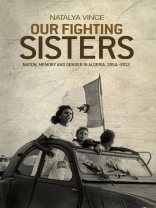Between 1954 and 1962, Algerian women played a major role in the struggle to end French rule in one of the twentieth century’s most violent wars of decolonisation. This is the first in-depth exploration of what happened to these women after independence in 1962. Based on new oral history interviews with women who participated in the war in a wide range of roles, from urban bombers to members of the rural guerrilla support network, it explores how female veterans viewed the post-independence state and its multiple discourses on ‘the Algerian woman’ in the fifty years following 1962. It also examines how these former combatants’ memories of the anti-colonial conflict intertwine with, contradict or coexist alongside the state-sponsored narrative of the war constructed after independence. Making an original contribution to debates about gender, nationalism and memory, this book will appeal to students and scholars of history and politics.
Mục lục
Introduction
1. Nationalist genealogies
2. Heroines and victims, brothers and sisters
3. 1962: Continuities and discontinuities
4. Embodying the nation
5. From national construction to new battles
6. Being remembered and forgotten
Conclusion
Select bibliography
Index
Giới thiệu về tác giả
Natalya Vince is Senior Lecturer in North African and French Studies at the University of Portsmouth












